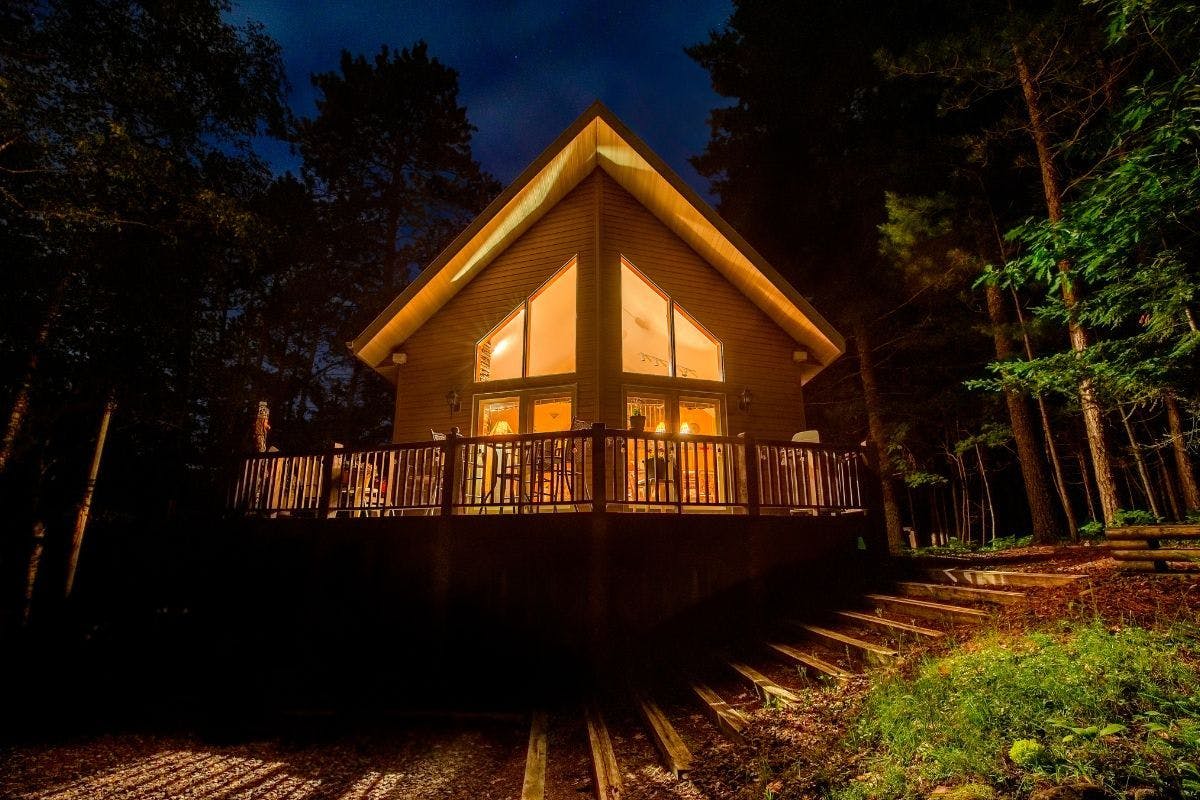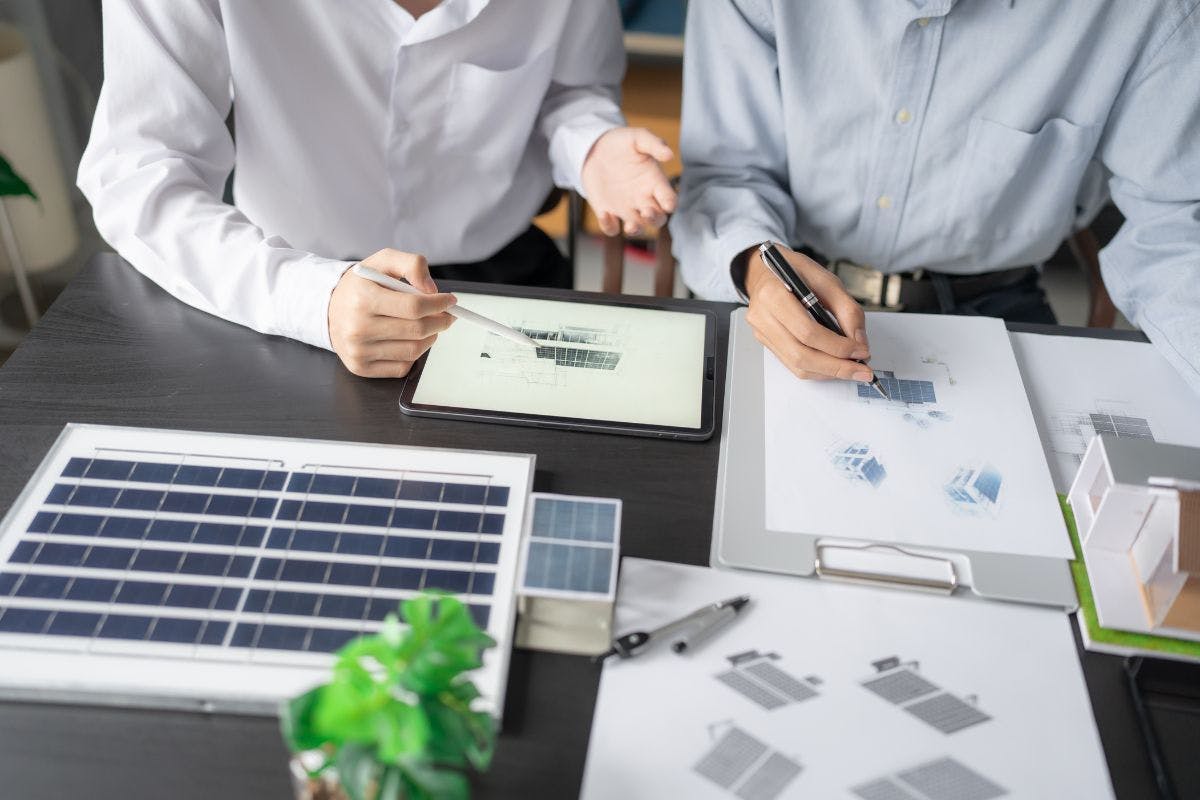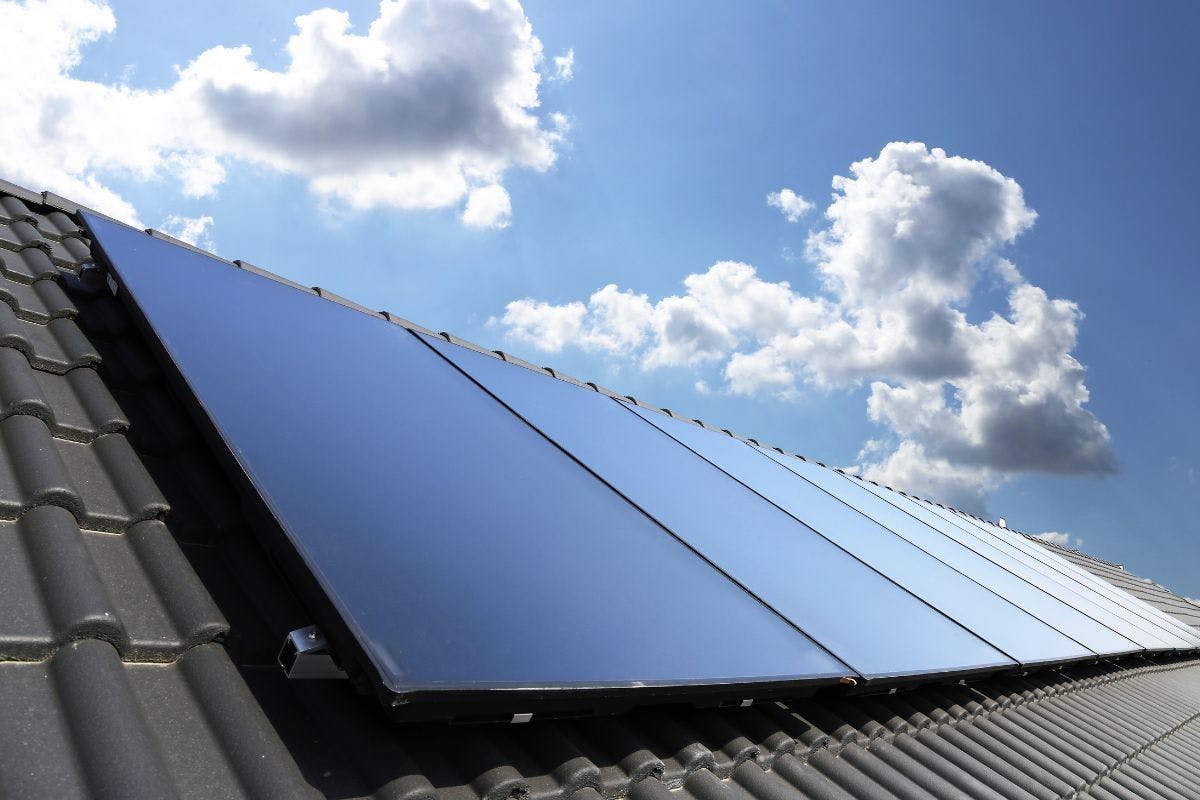Backup Battery vs. Generator: Which Do You Want in a Blackout?
Last edited

Author
Andrew Giermak
Solar and Electrification Writer and Editor

Editor
Andrew Blok
Electrification and Solar Writer and Editor

When the power went out and you really needed some electricity, you really only had one option: a generator.
Generators are still going strong, but new energy backup options are emerging, from small portable batteries to larger, battery storage, often paired with home solar panels. Which option — generator or battery — is best for you depends on a variety factors, which will cover below. Here's what you need to know about the battery-vs.-generator matchup, just as it's starting to heat up.
See how much you can save by going solar with Palmetto
More Frequent Power Outages Increase the Need for Backup Power
Power outages across the US are a serious issue. The Department of Energy reports the US economy loses $28-$169 billion a year because of power outages. Weather-related events cause most outages.
In the last year, from Florida to North Carolina to California, Hurricane Helene, Hurricane Milton, and the Pacific Palisades wildfires caused power outages as part of more extensive catastrophic damage. In 2024, the National Oceanic and Atmospheric Administration recorded 27 tornadoes, hail storms, heat waves, winter storms, wildfires, hurricanes, and floods as disasters causing $1 billion or more in total damage. It was the second most in a year, and climate-driven extreme weather is likely to increase in frequency.
However, the weather is not the only issue, as aging grid infrastructure is another major cause of increased power outages. Some of the US power grid is well into its third generation, dating to the 1960s and 70s. Some parts are even older. This means they are more susceptible to damage in disasters and less able to sustain our increasing demand for electricity.
Replacing old infrastructure won't happen overnight. Thus, homeowners consider backup, independent power solutions such as battery storage and backup generators to have power available during blackouts.
Solar Batteries vs. Backup Generators
Standby generators are a common backup power option during blackouts. Solar battery storage is becoming more viable and popular as home solar panels are, too. There are many benefits to pairing solar batteries with a solar power system.
Solar backup battery pros
Rechargeable renewable power: A backup battery system attached to solar panels can give you free, renewable power as long as there’s some sunlight to use. You can refill your batteries with more electricity even when the grid is out. As soon as you have sunlight again, you’ll have solar power.
Free and easy to charge: You can charge solar batteries with effectively no effort, with solar power running from your panels, even without a power outage.You can fill them with free solar power, then use the energy when you have higher rates, during the utility’s peak or super-peak hours, or at night instead of using grid power.
Easy to start: Solar batteries are always on. In an outage they can provide backup practically instantly without needing you to handle fuel, move a large piece of equipment, or worry about safety measures.
Quiet: A solar battery runs very quietly. Batteries or battery banks can be put indoors or out.
Clean: Solar batteries run on clean energy. They operate cleanly with no fumes or exhaust.
Increased home value: Solar batteries paired with solar power systems increase property value in the vast majority of cases.
Tax credits and incentives: Solar batteries are eligible for federal tax credits as part of the Residential Clean Energy Credit. The credit is 30% of the cost of purchasing and installing new clean energy devices. There is no maximum limit to the credit with solar batteries.
Solar backup battery cons
Upfront cost: Solar batteries are a significant expense, though incentives can reduce the cost. In some places, like California, solar batteries can save you more money than it costs. Factoring in the details of your net metering or net billing agreement, your likely usage of battery power, and how the expense of batteries will change your estimated solar payback period will help you know if the cost is worth it.
Capacity: While you can certainly install enough batteries to completely back up your home, it may be prohibitively expensive. Often, backup batteries power critical loads, the few things you need to get through an outage.
Lifespan: Solar batteries can be expected to last 10-15 years. Because solar panels generally last 25 or more years, you’re likely to need new batteries once or twice in a home solar system’s lifespan.
They need sun: While generating free energy from the sun goes largely in the positive column, solar batteries need the sun hitting your solar panels to recharge during a power outage. Should you get a stretch of feet of snow, or lots of grey weather, solar batteries may not reach full charge or give your home full around-the-clock electricity for a period of time.
See how much you can save by going solar with Palmetto
Pros of backup generators
Guaranteed power: As long as you’ve got fuel, you have a power source. You can run as little – only critical appliances or devices – or as much of your home as you want, depending on the size of the generator.
Good in an emergency: Generators are a good resort for power in an emergency.
Can be portable: Generators can be portable, so they can be good to take on the road or to an event where you want power.
Can be cost-effective: If you rarely need backup power, and depending on factors such as net metering in your area or state, a backup generator could be more cost-effective than solar batteries.
Cons with backup generators
Carbon monoxide: A generator must be outside while it runs due to the gas exhaust and risk of carbon monoxide poisoning.
Dirty: A generator gives off exhaust and fumes from the gas.
Fuel: A generator needs fuel, and needs enough fuel for how long you expect to use it. This can be costly and might not be possible depending on the length and severity of the emergency or outage.
Maintenance: Generators need the proper maintenance and cleaning to run efficiently, safely, and reliably.
Noise: Generators are louder than solar batteries.
Backup batteries vs. backup generators
| Batteries | Generators |
|---|---|
| Minimize disruptions during an outage | Minimize disruptions during an outage |
| Can recharge for free with solar panels | Refuel with gas |
| Expand solar savings into night time hours | No benefit outside of outages |
| Clean and quite operation | Can generate annoying or harmful fumes |
| Capacity may pose problems | Capacity only limited by fuel supply |
| Little to no maintenance | Higher maintenance requirements |
How Solar Panels Operate During a Power Outage
Standalone solar panel systems aren't designed to work during a power outage. They automatically shut down in the event of a blackout to avoid sending electricity to the utility grid when the grid is down and utility workers are working on it.
If your battery storage system disconnects your home from the grid, you can use and generate power.
How solar panels work with battery storage
Having battery storage helps you have little or no power disruption in a power outage. With enough energy storage capacity, you can keep your home running for days with no change in routine.
The excess electricity generated by your solar panel system is stored for use when your panels can't generate power.
Many solar power systems with backup battery storage can be set up to temporarily separate from the grid during an outage, supplying the home and backup battery with power when the sun’s out.
Not all solar panel systems with batteries have inverters that can do this, so it’s important to make sure your installer designs your system with this need in mind if you want to have battery backup power available during a grid blackout.
How solar panels work with a backup generator
Home backup generators are designed to detect outages. They have a switch that disconnects your home from the utility grid and connects to the generator. During an outage, your solar panels will stop producing electricity, and your gas-powered backup generator will produce electricity.
How solar panels work with no backup system
If you don't have a backup option and there’s an outage, the inverter shuts your system off and stops electricity going to the grid to protect the people fixing the outage. Your panels won’t send power to your home until the outage is over.
When Solar Plus Storage Makes Sense for You
Power outages in the US are on the rise because of climate change and the aging grid. While generators are a solution for emergency power, solar battery storage can help you save money, use more clean energy, and navigate outages.
Working with Palmetto ensures you have the right electricity options in place for your home. Connect with a Palmetto solar advisor to discuss your solar energy options, or you can use our solar savings calculator.
See what solar can do for you:
Frequently Asked Questions
What’s better, a home backup battery or a backup generator?
A home battery, or bank of batteries, has many benefits, especially if you have home solar power. Solar batteries can recharge for free with the sun. Backup batteries work well for cheap electric vehicle charging. One more plus is the potential tax credits and incentives available for batteries.
What are the disadvantages of a standby generator?
Generators need a large amount of fuel to run, especially if you’re counting on generator power for a long span and/or to run most or all of your home. Generators can be louder and dirtier, plus you need to take safety measures to avoid carbon monoxide poisoning and other exhaust or fumes.
Are batteries better than a standby generator?
Batteries can be a better fit than a generator, especially if you have solar panels. Batteries can also provide value outside of a power outage. They’re cleaner and quieter and, depending where you live, can save you money.


